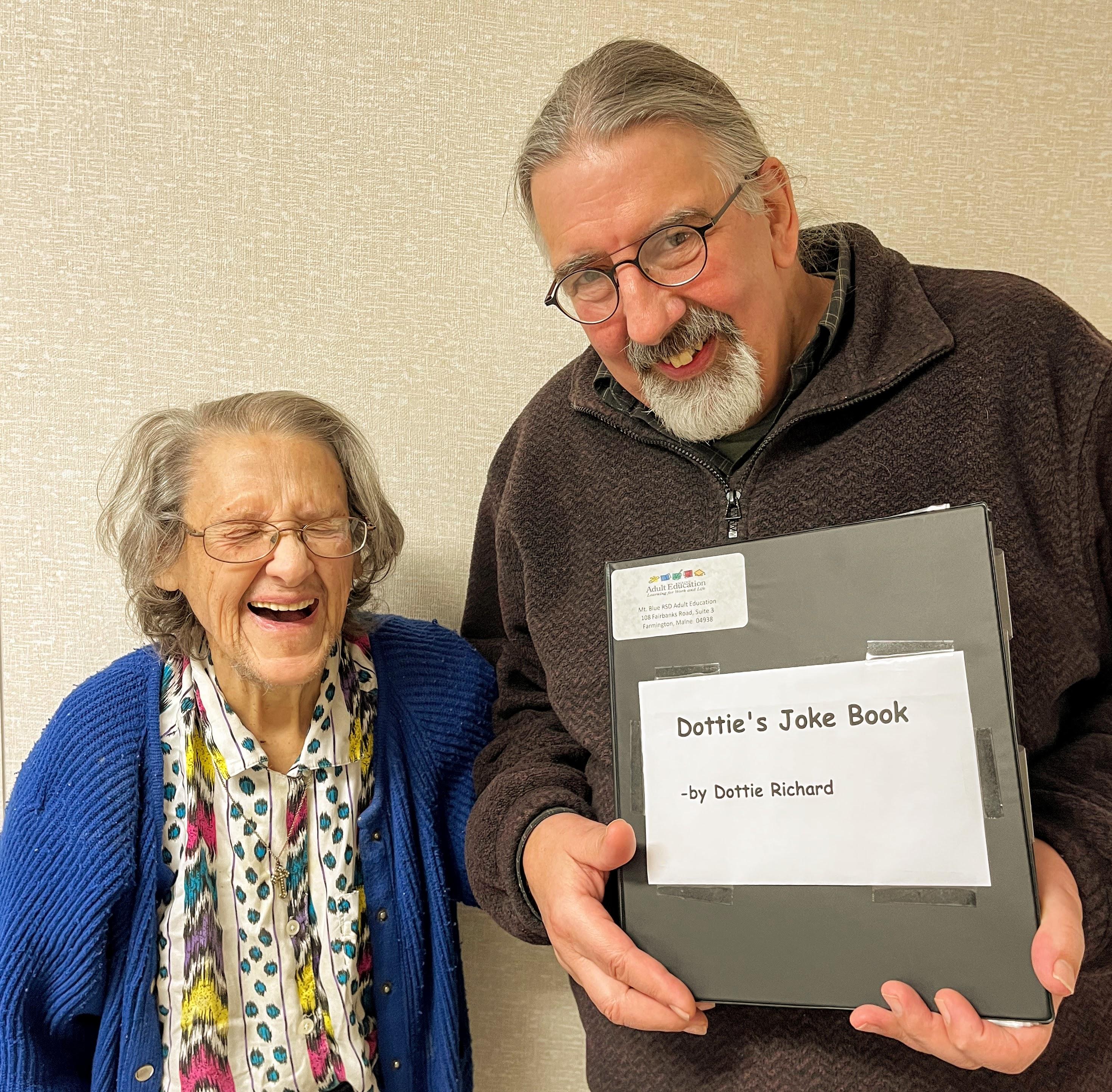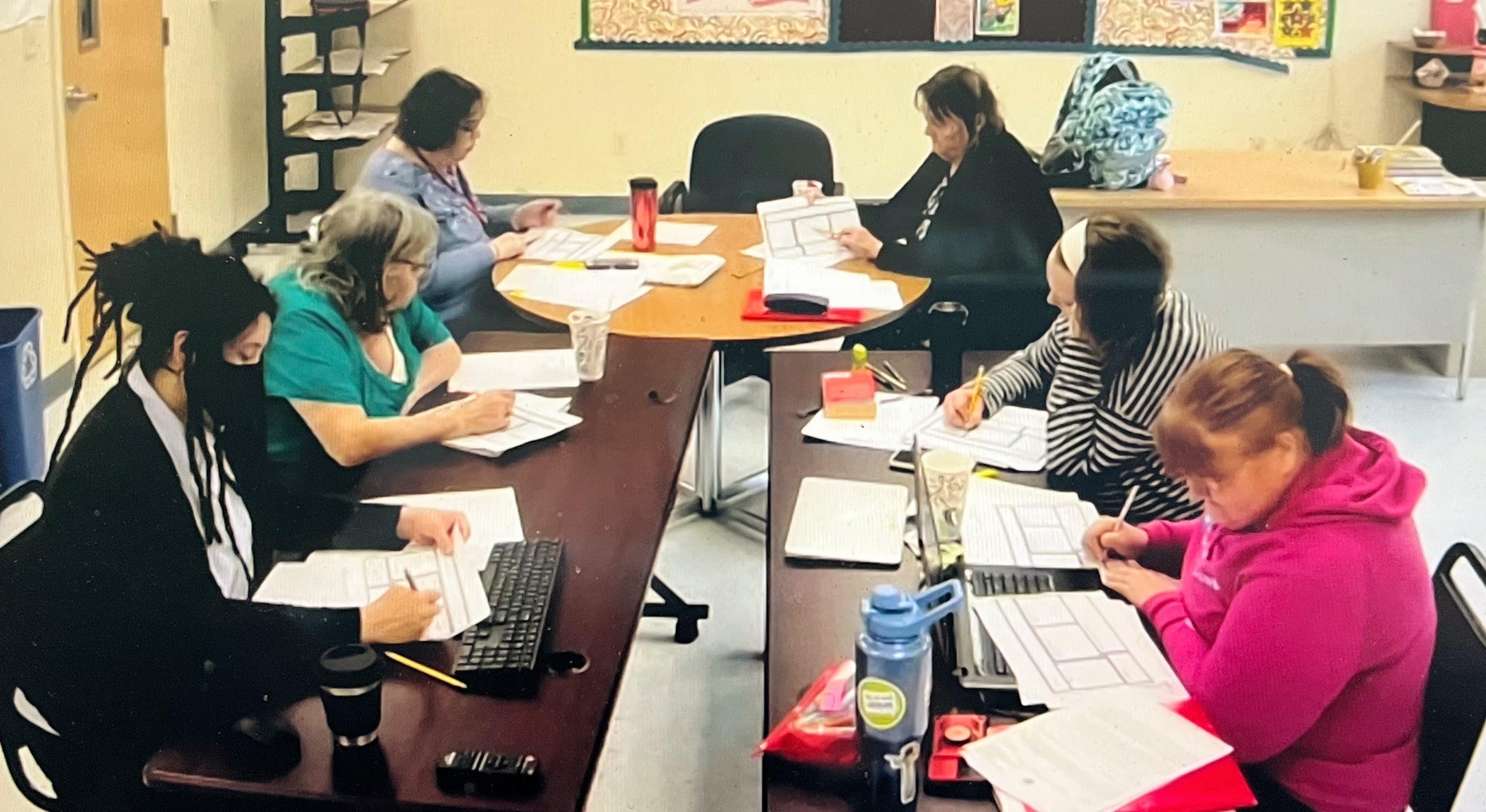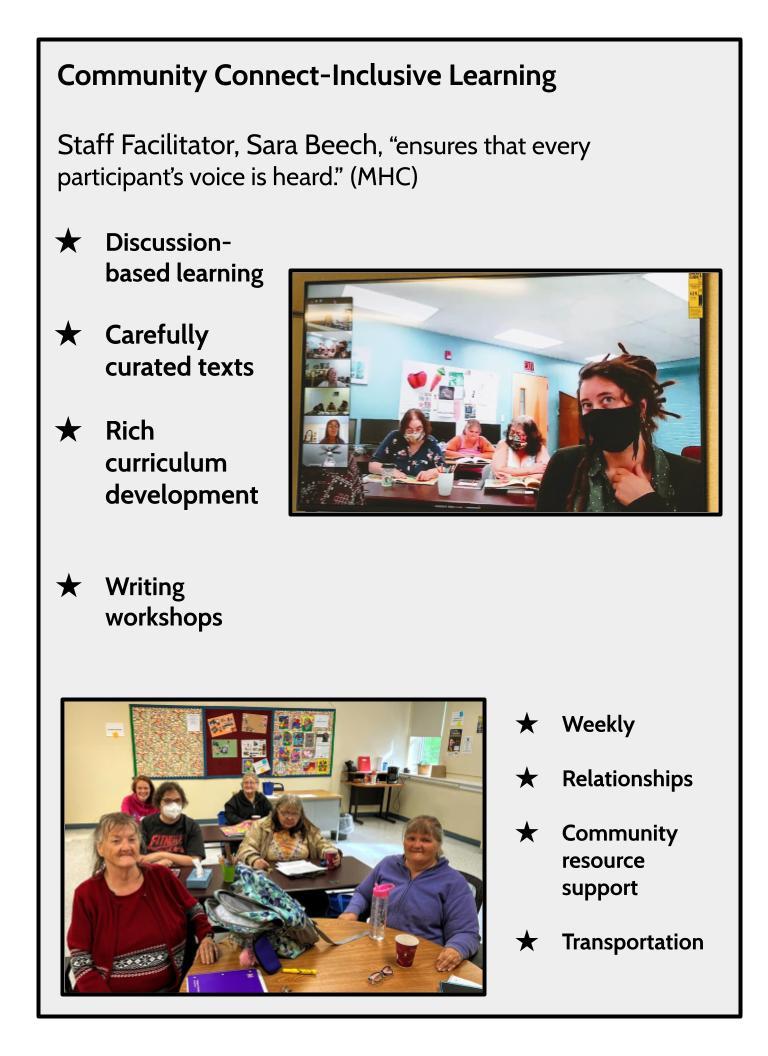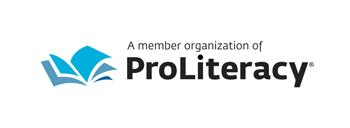Adult Tutoring Program-"Learning Together"
“When individuals build foundational literacy skills on a continuum of learning,
develop their knowledge and potential,
and achieve progress on self selected goals,
they forge independence, improve health and stability for themselves and their families,
and participate in communities,
to make communities stronger and safer.” (UNESCO)
We train volunteers to tutor with adults who read at a level below the twelfth grade to achieve self selected literacy goals. If interested or have questions, contact us.
Tutoring takes place in two ways:
1) Individual Learning Partnerships-"One to One" Tutoring since 1978.
Volunteer tutors are matched with a student in a learning partnership with a goal to learn together once a week for 1 hour in a public setting.
2) Collaborative Learning partnerships-group tutoring since 2015.
Volunteer tutors are matched with small learning groups in synchronous classrooms. We partner with over 61 collaborators to implement our curriculum and share resources. Texts and learning kits are provided at no cost to registrants.
Every Learning partnership is unique to the needs of the student.
Dottie Richard and Mike Burd share a sense of humor and help each other compile jokes from the Sunday newspaper. Right now, Dottie shares her joke book with residents of the Sandy River Center nursing home in Farmington.

"Genius Hour" project based learning at Spruce Mountain Learning Center

Partnering with Community
The circle of impact upon the culture of literacy widens
when people feel more comfortable to use what they learn
in different settings and share with others.

Literacy Volunteers adult tutoring programs focus on developing habits and skills of co-learning to build a sustainable culture of literacy and learning. Data from 2022 Literacy Volunteers Affiliates of Maine survey reports that the primary achievement of a majority of students was increased engagement in the community.

